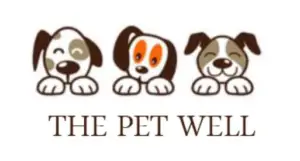Do Bull Mastiffs Drool A Lot and How to Prevent It
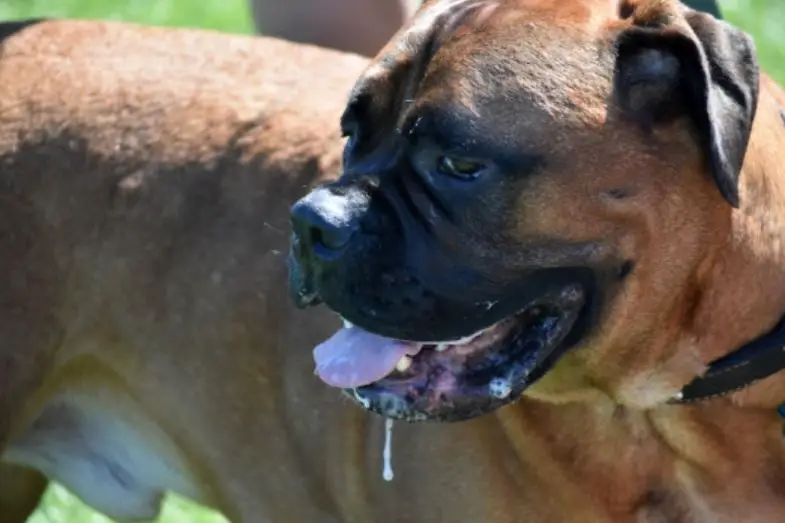
There is no doubt that Bull Mastiffs can make excellent pets. They are strong and protective, yet laid back and mellow.
They can make a great addition to any family and get along well with Children and other pets alike.
They have been bred for centuries as guard dogs and these instincts remain, making them an excellent defender of the home that don’t bark excessively and don’t need a ton of exercise like other large breeds meaning they can live in apartments.
While there are a ton of positives with these loyal and loving animals, one of the less endearing facts about Bull Mastiffs is their tendency to over drool. Not only would your Bull Mastiff drool, but he’ll also sling it around like hash.
If you’re not willing to mop up the drool from your furniture, walls, floor, and yourself regularly, maybe this isn’t going to be the breed of dog for you.
Do Bull Mastiffs Drool A Lot Compared to Other Breeds of Dog
When you own a Bull Mastiff, you’ll spend a lot of time wiping up dog drool. These dogs have a high drool potential, and owners soon learn to keep towels on hand for cleanups at all times.
Your dog drools because of his facial structure. Your dog’s lower lip is looser than most other dog breeds. Some dogs that drool excessively have a fold in their lip called a “drool shoot.” Plus, a Bull Mastiff has longer jowls, and it’s difficult to hold the drool in his mouth.
What Causes Them to Drool Excessively?
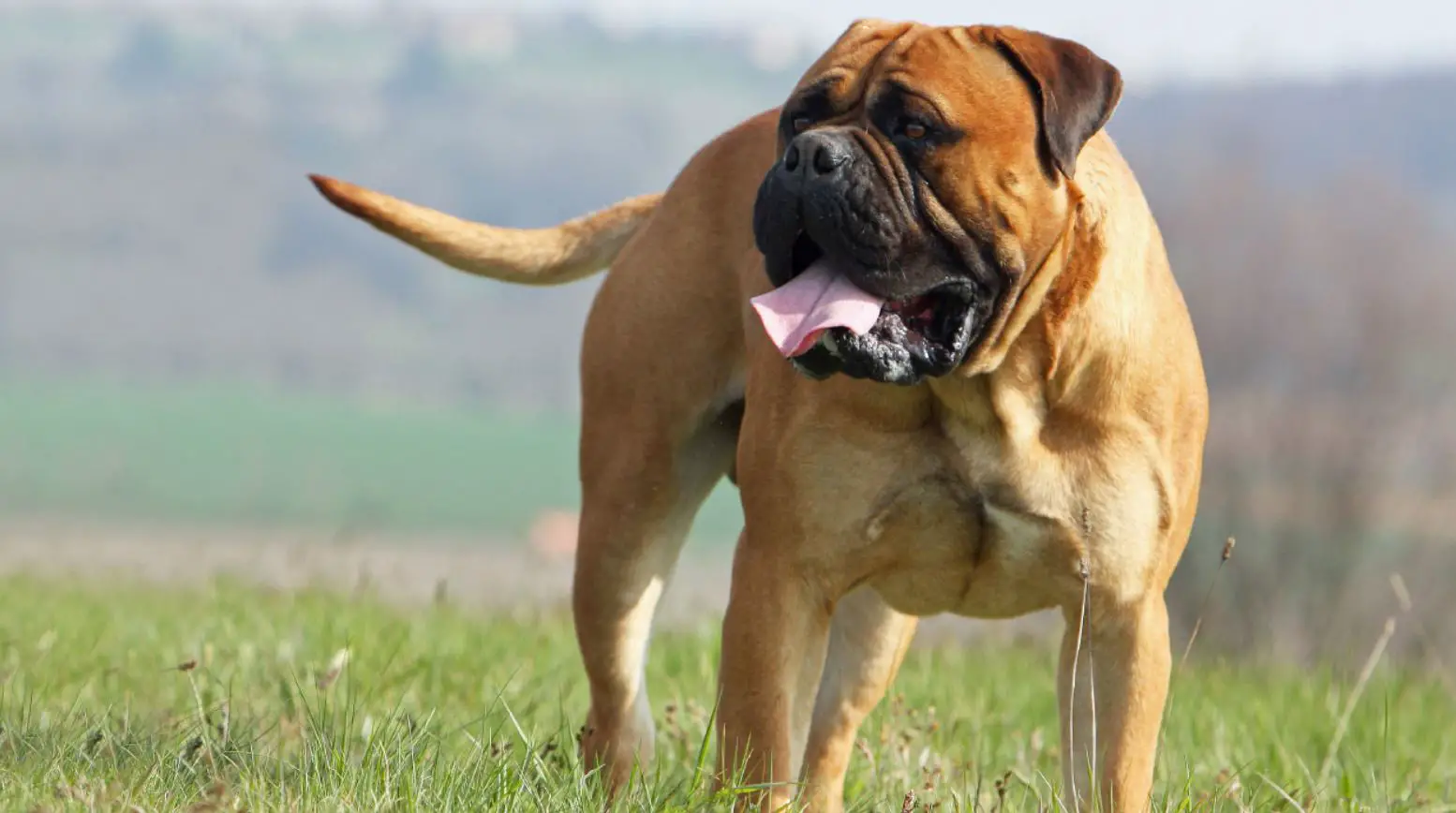
All dogs drool at one time or another. The salvia glands in your dog’s mouth make salvia that will help lubricate your dog’s food when he eats.
Plus, his drool will protect his teeth and oral tissues by flushing them. Also, your pup will use salvia as a way to keep cool, which is why he pants in hot weather.
Your dog drooling is a good thing, but too much drool isn’t. If your furry friend is drooling more than usual, you might want to consider the following causes:
- Over-Exertion: If your dog is panting after over-exerting himself, make sure he has access to water and a place to cool down.
- Excitement and food: When your dog is overexcited, he may start to drool excessively. What you can do is identify the trigger and then work on reducing his exposure to it. Plus, if your dog knows it’s feeding time, his salivary glands are going to go into overtime, just like yours do when you smell a fresh-cooked steak.
- Heatstroke: If your pup is left outside too long in the sun or doesn’t have access to water, his chances of getting heatstroke increase. Always have fresh, clean water for him and places in your yard that are shady for him to cool off. If it’s sweltering out, keep him indoors as much as possible, only letting him out if he needs to relieve himself. Don’t ever leave your dog in a parked car in hot weather, heatstroke can happen in minutes. If you suspect your furry friend has heat stroke, call the vet immediately.
- Motion sickness: Some dogs, if they only go on car rides for the vet, become motion sick. Or the anxiety of figuring out he’s going to the vet because he’s in the car can cause your dog to become sick. It will also cause excess drooling. Taking him for short rides that don’t end up at the vet will go a long way to keeping him calm in the car. If the car sickness continues, talk to your vet about medication for him.
How to Combat the Drooling or Control It Is as Much as Possible
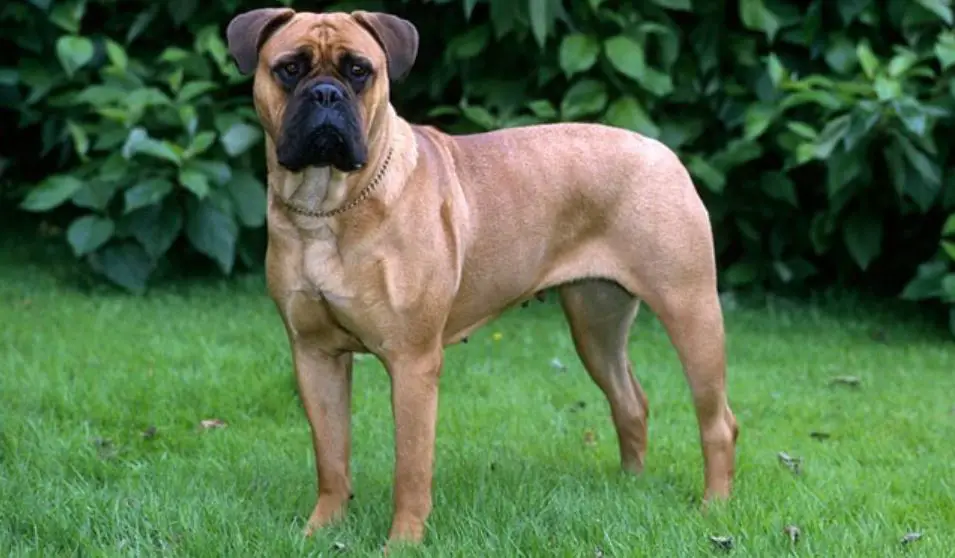
Because your Bull Mastiff is the type of dog that drools, you will want to learn how to try to keep it under control. One way is to keep a lot of towels handy for mopping up. You want to catch the fresh stains before they get hard and crusty, which makes them harder to remove and odourous.
You can also tie a bib or bandana around your pup’s neck. It helps to reduce the flow of salvia dripping. It will give a place for the saliva to absorb instead of your floor and furniture. After a long walk or run, drying your dog’s mouth will help. If your dog has just been exercised, he’ll have a tendency to drool more than usual.
Your pup may drool excessively when he knows that it’s mealtime. You can help with that by laying a towel or rug on the floor where your dog’s dishes are located. It will catch most of the drool while he’s waiting for you to fill his bowl. Plus, if you’re planning to take your pup on a car ride then feed him at least three hours ahead of time. Dogs tend to drool heavily while in a car.
Using homeopathic remedies, like lemon extract, could work. But you need to discuss this with your vet before giving it to your pet. It’s because it may inhibit your pet’s secretion of salvia, which brings about new problems.
As a last resort, having surgery on your dog will tighten the skin around his mouth. This is not recommended, though, because it modifies the face structure of your pet.
What Problems Does the Drooling Cause?
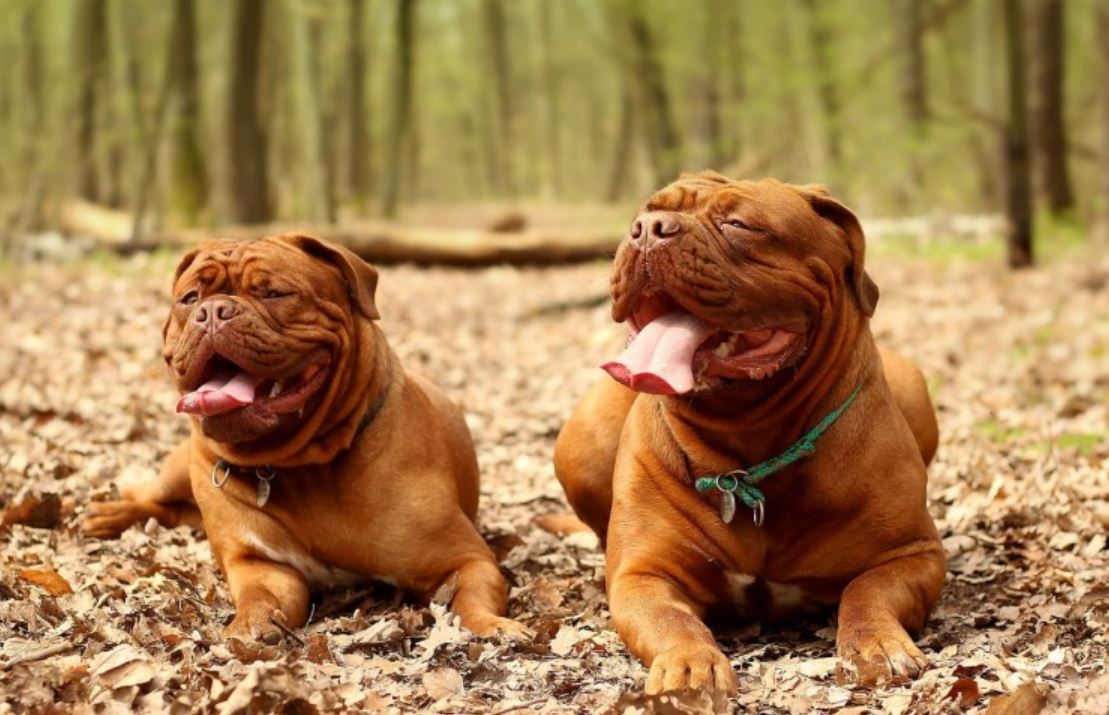
A drooling dog can cause some problems around the home. Since dog saliva has a lot of bacteria that could cause diseases or be harmful to children and the elderly, it’s essential to keep ahead of it.
Cleaning up dog drool can be a challenging issue and will need lots of hand on elbow grease. Drool can be flung on the walls, ceilings, baseboards, and floors. To remove dried drool, a Magic Eraser works, or you can use a combination of vinegar and water.
To remove the drool from appliances and your windows, using glass cleaning spray will work. To get it off your furniture, you can try rubbing alcohol in a spray bottle and wipe with a non-colored sponge. Since rubbing alcohol evaporates fast, it won’t saturate your fabric on your furniture.
Plus, it gets all over your clothes, and the salvia stains removal takes it to another level. You can remove these stains if you use the right method:
- plastic spoon, bucket, an old toothbrush
- ½ tsp dishwashing detergent, 1 tbsp ammonia, enzyme prewash stain remover
- laundry detergent, bleach
Take the spoon and scrape off the excess and dried saliva. Combine the dishwashing detergent and the ammonia in 4 cups of water in the bucket. Soak your clothing for 15 minutes.
Scrub the stained item with the toothbrush, and then place it back into the water for 15 more minutes. Rinse the clothing to wash out the ammonia and loosen the stain. Then apply the prewash remover on the stained area and let in on for 30 minutes. Then wash your clothes with oxygen bleach and laundry detergent in the washer.
Are There More Serious Possible Causes?
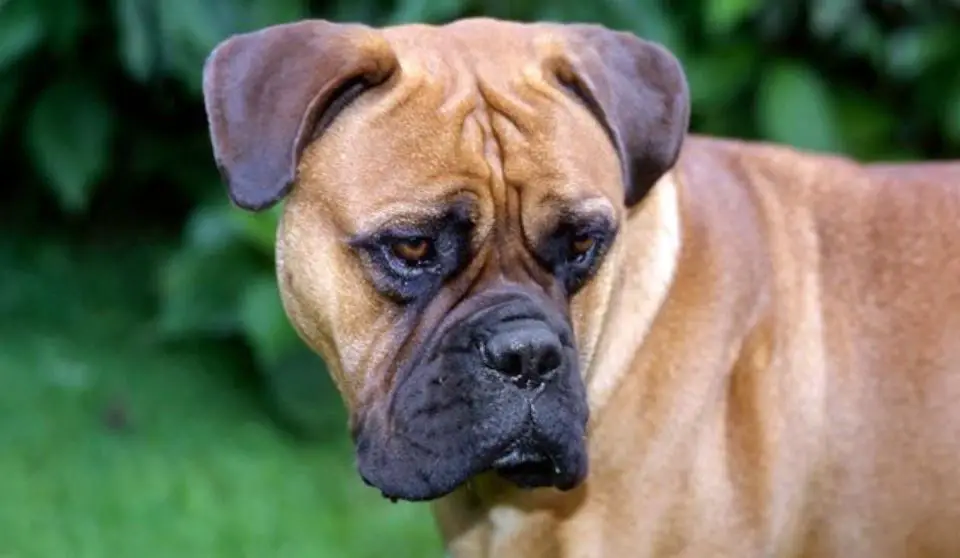
Sometimes your dog will drool for more serious reasons than the ones listed above. If you think any of the reasons below are why your dog is drooling, contact your vet immediately.
- Poisoning: Poisoning can happen from things otherwise than your pet getting into a poison in a container. Dogs can be poisoned from plants like tulips, azaleas, and chrysanthemums. These can cause your dog to not only drool excessively but make him sick. Your pup can get sick from eating certain types of toads or frogs, scorpions, or spiders that are poisonous. For the list of plants that are poisonous to your dog, consult the American Society for the Prevention of Cruelty to Animals.
- Mouth injuries: If your dog has injured his mouth, it can cause drooling and pain. Check inside your dog’s mouth carefully when brushing his teeth or if you suspect an injury.
- Rabies: If your dog hasn’t his rabies shot and is bit by a rabid animal, excess drooling and foaming at the mouth are signs of this disease.
- Organ disease: If your dog has liver or kidney disease, they can be another cause of drooling. As your dog becomes older, have vet checks annually to diagnose this possibility.
- Mouth disease and tooth decay: If your dog has tartar buildup, it can rub against the inside of your furry friend’s mouth, causing him to drool. To check for this, pull his lip back towards his ear. If his teeth are brown, look like concrete, or his gums are swollen, red, or bleeding, he needs to see the vet. Your vet can give him a professional cleaning and check for mouth ulcers, tumors, and gingivitis.
Other Possible Cons of Bull Mastiffs?
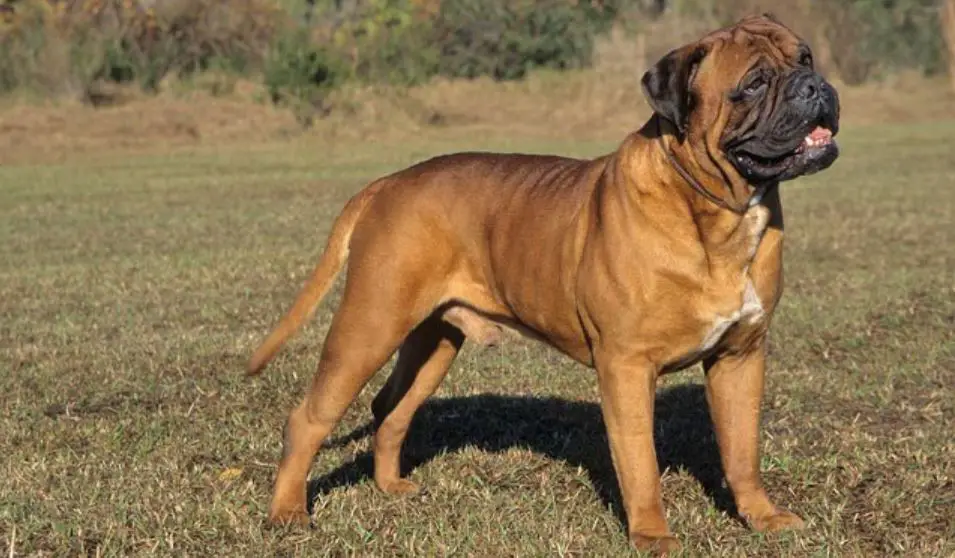
Another issue with Bull Mastiffs is your dog’s face full of wrinkles. Those folds of skin hides dirt, nasty microbes, and moisture. If you don’t properly clean your dog’s wrinkles and folds, then he can get infections and sores. He needs his wrinkles cleaned with a wet washcloth every other day, at least, but daily is better.
After washing his wrinkles, they need to be dried with a soft towel. If you do notice an odor or irritation coming from these folds, call your vet. Your Bull Mastiff has sensitive skin. If he does develop allergies or irritation, it’s better to deal with it quickly.
Another con of Bull Mastiffs is the “drip.” You’ve noticed that your pup has taken his last big drink of water and then the trail that is all over your kitchen floor? That is the drip, and it can be cleaned up fast with a towel. If you don’t get it cleaned up right away, then the combination of the drip and the drool can cause you to go skating across the floor.
Do Bull Mastiffs Shed A Lot?
Bull Mastiffs shed moderately year-round and have a dense single-layered coat. Your dog won’t shed as much as a dog with a double-coat, but the hair he does shed will get on a lot of stuff. Your pup’s hair is short, and it’s stiff, and that means that instead of coating you and your furniture, his hair will get stuck in your clothing and furniture. You will find that you will carry a piece of your pet wherever you go.
There are some options you can do with handling the shedding. Brush your pet regularly to remove as much hair as possible. Use a rubber grooming mitt or a short bristle brush and brush his coat every day. When you do this, it removes all the dead hair, distributes the oils from his skin throughout his coat, and will stimulate his circulation. After you have thoroughly brushed your dog, use a chamois cloth to give his coat a shine.
Do Bull Mastiffs Stink?
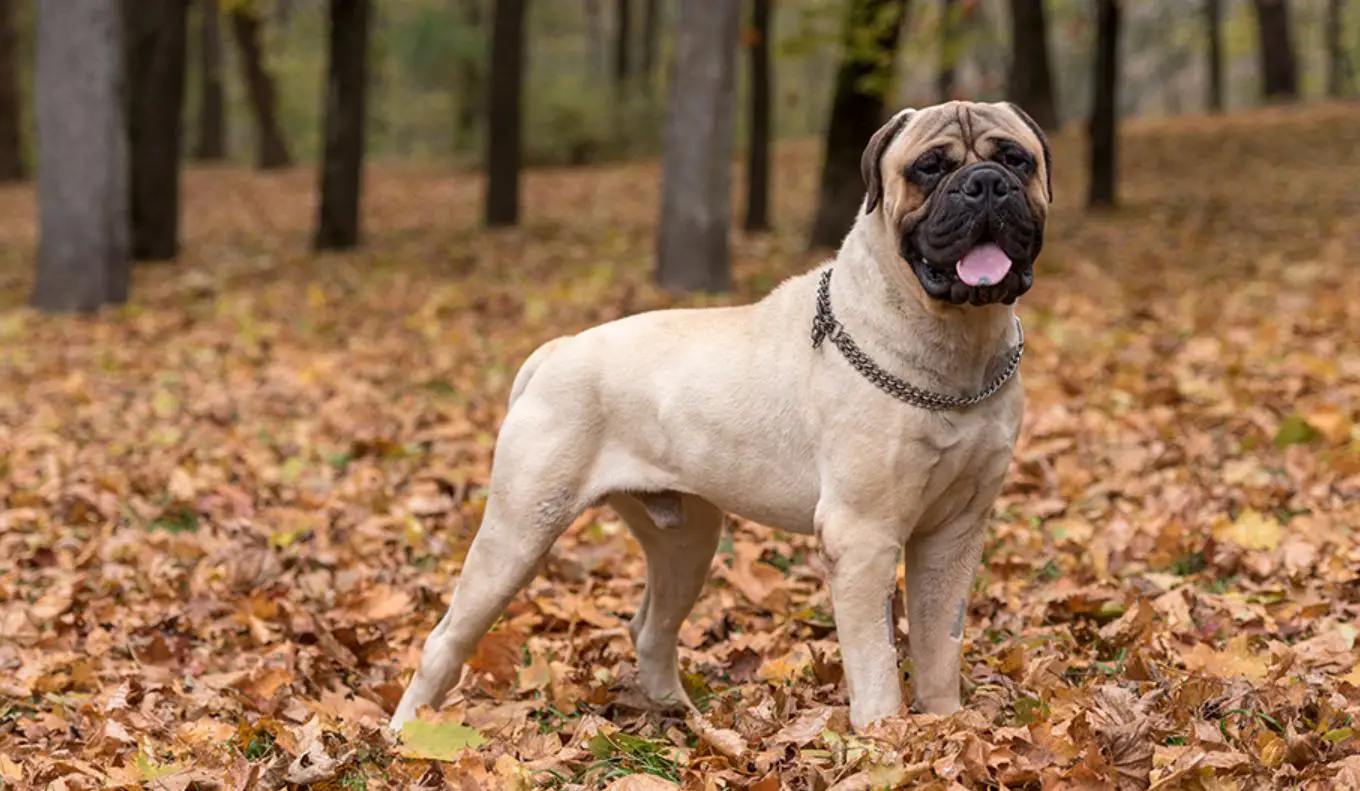
Yes, Bull Mastiffs smell and each dog has his own natural scent, which can be strong. It will become even worse if your dog hasn’t had a bath in a few weeks. The smell is caused by scent glands that are located over different parts of your pet’s body. Plus, Bull Mastiffs have oily skin, and dirt gets trapped against his skin reasonably easily. So, because of the trapped dirt that mixes with the body oils and the scent glands, your furry friend can get stinky fast. Your pet should be bathed at least every two weeks.
If your dog’s folds aren’t cleaned, as mentioned above, it can cause skin infections, rashes, or scaly skin with hair loss. Ear infections are another source of the possible odor. The symptoms of that are dried blood in the ears, excessive scratching at the ears, dried blood, and drainage. You will need to take your dog to the vet.
Or your pet’s anal glands could be infected. These glands are located near your dog’s anus. The glands need to be expressed regularly, so a buildup of bacteria is prevented. If there is a nasty infection in that area, it will cause odor too.
Conclusion

A Bull Mastiff is a wonderful companion and friend. If dog drool doesn’t bother you and you’re are willing to clean up the drool messes and bath him regularly, a Bull Mastiff is the perfect dog in many ways.
Just be aware that these giant dogs do require a good deal of care, but the reward is undying devotion and love.
If you want to learn more about Bull Mastiff’s, click the link below:
Don’t forget to check out our profile Articles on the Beauceron and The American Bulldog
References:
https://www.modernmolosser.com/how-to-deal-with-drool-in-Molossers
https://pawleaks.com/dog-jowls/
https://pets.webmd.com/dogs/dog-drooling-salivary-gland-problems#1
https://www.petsecure.com.au/pet-care/handle-dogs-love-drool/
https://www.bullmastiff-info.com/do-bullmastiff-drool-a-lot/
https://www.cheatsheet.com/culture/these-dog-breeds-are-the-biggest-droolers.html/
https://www.petsecure.com.au/pet-care/handle-dogs-love-drool/
https://pets.thenest.com/shedding-bullmastiff-11284.html
https://vetconm.com/why-do-some-dogs-slobber-more-than-others/
https://thedogvisitor.com/qa/why-do-bullmastiffs-smell
